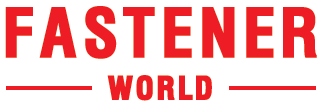GOVERNMENTS/ASSOCIATIONS/FASTENER GROUPS
Interview with EFDA President Andreas Bertaggia


Add to my favorite
2023-11-21
Since 2022 the market demand, inflation, raw materials, climate change and many other factors have continued to affect the global supply chain (and the EU industry is no exception). Do you think the pressure on the European fastener industry due to these issues has eased so far and are there any new issues of concern emerging? What is your forecast for the EU economy in 2024?
A: The pressure has not become less. Quite the opposite: the challenges for our industry are increasing due to growing regulation, geopolitics, and the general political and economic environment. Already the last quarter of 2023 will be challenging for European traders. And for the coming year, I expect even more regulation and decreasing demand. However, although 2024 will be a challenging year for our industry, I hope that by the second half of the year our industry will see a recovery.
The practices adopted by European fastener distributors in response to changes in market supply & demand, industrial upgrade and corporate sustainability have always been the benchmarks for their counterparts in other countries. In the face of these new & old challenges in the market that we are all closely concerned about, how do the European distributors standing at the front line for their customers cope with and overcome them? Do you have any case (e.g. mergers & acquisitions, changes in marketing operations, etc.) to share?
A: European fastener distributors are characterized by a high degree of flexibility and agility and are very quick on the market. They take the tasks they are currently facing very seriously. These include the legal provisions of the EU sanctions against Russia, including an import ban on fasteners from third countries if manufactured by using Russian steel products, and the EU Carbon Border Adjustment Mechanism (CBAM). Our companies are also responding quickly to changes in supply chains and market volatility. Overall, I see European fastener distributors well prepared.
EU’s CBAM has been implemented since October 1 and energy saving & carbon reduction have become priorities for fastener manufacturers in Asia. Has any additional CBAM-related requirements already been proposed by European fastener distributors to their Asian suppliers? What would you suggest Taiwanese manufacturers to do to comply with the new EU regulations?
A: First of all, CBAM is a law with multiple obligations that European importers of fasteners have to fulfil. CBAM is complex and far-reaching in its requirements, and all of our member companies are in the process of familiarising themselves with the subject and finding solutions. Not all questions have been answered yet. There is even still a lack of specifications and implementation of individual aspects of CBAM by the EU or the EU member states.
What we can advise the Taiwanese is that they seriously deal with CBAM. I know that Taiwan started very early to prepare for CBAM. Taiwan is acting in a very exemplary way and is at the forefront of exporting countries in the fastener industry. Taiwanese manufacturers and European distributors must work hand in hand on solutions to this issue so that the trade business between our regions can continue to operate successfully. For example, it will be vital that CBAM reports reflect true costs. Certificate trading, which will start in 2026 for European fastener importers, will become a serious cost factor. The more CO2 emissions the imported goods have caused, the higher the costs of certificates. Here, the European distributors will take a close look at which suppliers are competitive in which countries. In the end, CBAM is a cost issue for all participants in the fastener supply chain.
According to EU statistics, the EU imported about 2 million tons of fasteners in 2022 (more than €8 billion), with the top 5 import origins being China, Taiwan, Turkey, Vietnam and India. As far as you know, what are the main applications of fasteners imported by the EU from these 5 countries? And for European fastener distributors, what are the respective advantages of fasteners from these 5 countries?
A: In the course of increasing globalization, standard parts were first procured from these countries for cost reasons. In addition to price, flexibility and service level played an important role in the success of these countries. The standard parts are sold to all industries, for example to the automotive, train, construction, and consumer products industries. In recent years, the business with special parts has also increased.
In 2022, more than 60% of Europe's fastener imports (about 1.28 million tons) originated from China and Taiwan, showing a very close cooperation of European fastener industry with suppliers from these two regions. What do you think are the reasons for this? In your opinion, what part of Taiwan's supply chain still gain the upper hand? On the basis of not competing directly with European suppliers, what are the other application fields that Taiwanese manufacturers can also try to expand their business to?
A: China and Taiwan are particularly competitive with regard to the mix of price, quality, and service they provide to their customers. And they both are producing a very high volume of fasteners. During the last years, Taiwan has massively increased its production of special parts and the quality level of fasteners in general – keeping a reasonable cost-benefit ratio.
A growing area of business for manufacturers is helping importers meet compliance regulations. Taiwan can achieve a lot in this field. I am convinced that if compliance requirements can be met, the good trade relationship between EU and Taiwan will continue.
After the Europe-Vietnam Free Trade Agreement (EVFTA) comes into effect in 2020, Vietnamese fasteners have become more competitive in exporting to the EU. Do you think such an agreement has caused some subtle changes to the existing fastener distribution system in Europe?
A: We do not know exactly to what extent the agreement has affected our industry. It is always beneficial when free trade is encouraged. We see, however, that the increasing importance of Vietnam as an alternative procurement market during the last years is also due to geopolitical tensions in Southeast Asia and for cost reasons.
What meetings or events have been or are going to be planned by EFDA for the upcoming 2024?
A: EFDA is planning a series of internal meetings for its members in 2024 including webinars on current topics as CBAM. The triennial European Fastener Distributor Conference will be held only in 2025 in Brussels, the EU’s “capital”, as EFDA will then celebrate its 25th anniversary.
Have you achieved any goals or accomplishments (including international exchanges) since your presidency?
A: One of our goals in EFDA is to assist its members and companies in coping with compliance issues. As already mentioned before, CBAM is playing a central part here, and will continue to do so. I am glad to see that we could assist our members with a frequent information service and webinars from an early stage so that they can get prepared in the best way possible.
I am also keen on keeping and strengthening the relationship between EFDA and its partner organizations all over the world. I would like to mention our traditionally good relationship to TFTA and TIFI in Taiwan, and also our exchange with the Taiwan authorities on CBAM recently.
What is your forecast for the global fastener industry in 2024?
A: We expect a strenuous and hard and overall very challenging year 2024 in terms of demand, sales increases, regulatory tasks, uncertainty and tensions. Unfortunately, it is unclear in which direction everything will develop.
Are there any other words you would also like to share with our readers?
A: We wish everyone in Taiwan and Europe can meet their challenges and work hand in hand within the supply chains to overcome these challenges.
EFDA
president Andreas Bertaggia
fastener
Europe
distributors
CBAM
Taiwan supply chain
歐洲扣件經銷商協會
Andreas Bertaggia理事長
螺絲螺帽
碳稅
台灣供應鏈
扣件
國際展會
惠達雜誌
匯達實業
外銷媒合
廣告刊登
螺絲五金
五金工具
紧固件
台灣扣件展
印度新德里螺絲展
越南河內螺絲展
墨西哥瓜達拉哈拉螺絲展
美國拉斯維加斯螺絲暨機械設備展
波蘭克拉科夫螺絲展
義大利米蘭螺絲展
德國司徒加特螺絲展
wire Dusseldorf
FASTENER FAIR INDIA
FASTENER FAIR VIETNAM
FASTENER FAIR MEXICO
FASTENER POLAND
FASTENER FAIR ITALY
FASTENER FAIR GLOBAL
FASTENER WORLD
READ NEXT

Subscribe







